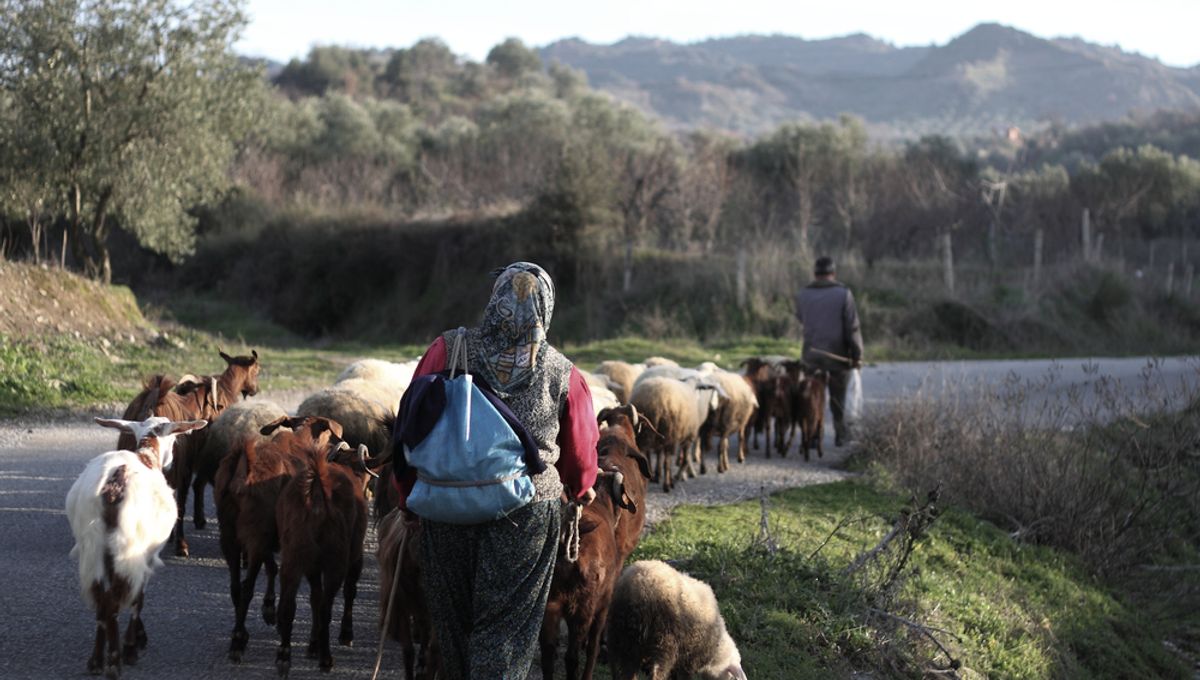
One family in Turkey has a way of walking that almost no other person on Earth does naturally – some members of the Ulas family walk on all fours, using the palms of their hands in what’s called a “bear crawl”. Out of the 19 children born to the family, five of them display this unusual movement, and have done throughout their lives beginning in early infancy. But why do they do it? The answer led to a staunch debate between scientists over ethics, genetics, and the sensitivities involved in helping people with lifelong conditions.
The Ulas family live in rural southern Turkey. In total, 19 children live with their parents, seven of whom are intellectually disabled and the rest non-disabled. Subject to intense research, the family has five children who display extreme imbalance along with their cognitive disabilities, which make it difficult for them to stay upright while walking. As a result, these five children all move around on their hands and feet, having become adept at moving in this way after years of never standing upright.
When observed by Üner Tan of Çukurova University Medical School in Adana, Turkey, it was concluded that the way some members of the Ulas family moved closely resembled how ancient Homo sapiens would have walked before evolution made them become bipedal, and it was controversially claimed they were a result of “backwards evolution”. In doing so, their condition was dubbed Üner Tan syndrome.
However, a BBC documentary looked to take a more biological and sympathetic approach towards the family. Spurred on by an unpublished paper by Üner Tan explaining his observations and ideas, British scientists Nicholas Humphrey and John Skoyles joined Tan on a visit to the Ulas family alongside a film crew, where they documented every step of the journey. The documentary shows four sisters – Safiye, Hacer, Senem and Emine – and their brother Hüseyin living an essentially typical life, aided by their strange gait, and father Resit explains that he does not want to be compared to “monkeys” in the way that Tan’s original ideas imply.
Parallel bars are fitted in the family home to help the affected members in going through physical exercises, and the documentary eventually shows Hüseyin walking upright along a path.
While the two scientists were joined by Tan and witnessed the same sights, they had an altogether different idea. Joined by established professor Roger Keynes, the scientists argued that the gait was a consequence of two rare conditions occurring at once, one biological and one developmental.
As all 19 of the family’s infants grew, instead of crawling like most children, the Ulas children used a bear crawl to get around. As the children grew out of this phase, some of them began showing a congenital condition that causes them to have difficulties with balance, congenital cerebellar ataxia, which is a recessive inherited condition passed through the family. What results is the children growing into adults while perfecting this gait, which the English scientists argue is completely different from any genes involved in evolution – they were quoted as calling Tan’s diagnosis “deeply insulting to this family”.
Since then, a significant number of recessive mutations have been discovered that could lead to the syndrome, leading to calls for it to be reclassified into different, more specific conditions to more accurately describe the symptoms. This is made difficult by the fact that many of the mutations lie on the same gene, called VLDLR, but result in entirely different phenotypes. There are also four more genes implicated in the disease, making it incredibly hard to establish an underlying mechanism for the disease.
Source Link: How The Family That Walks On All Fours Baffled Scientists For Years